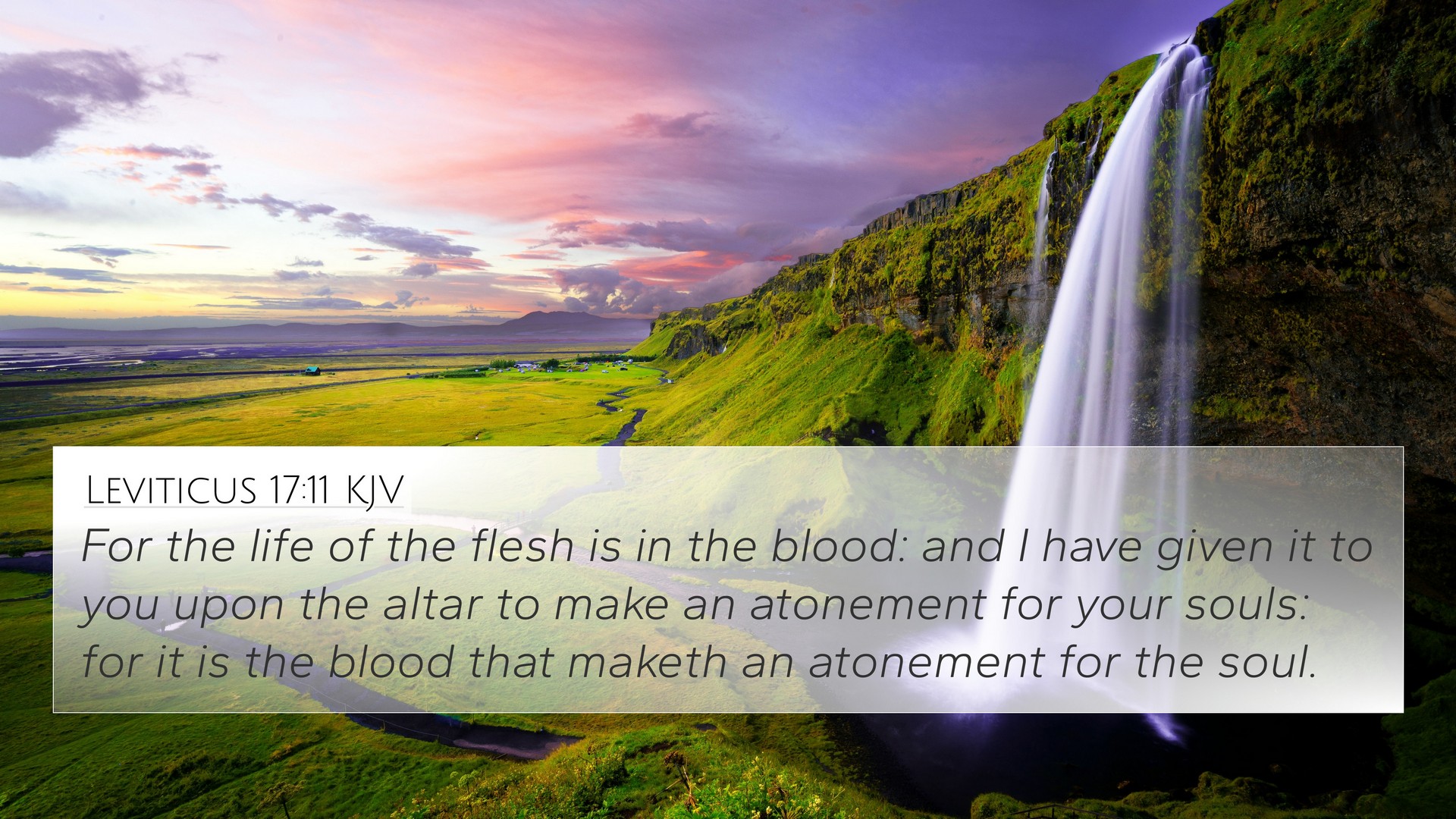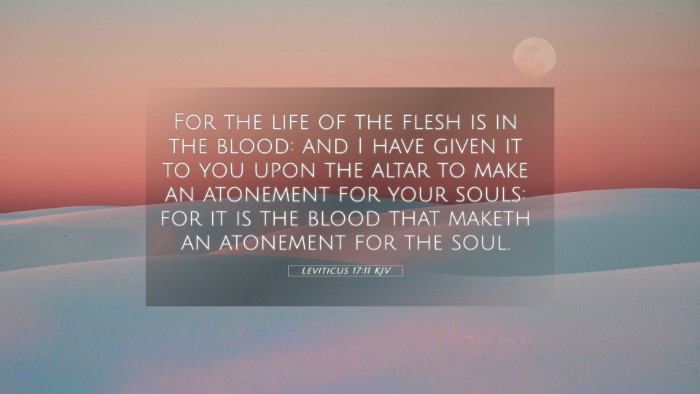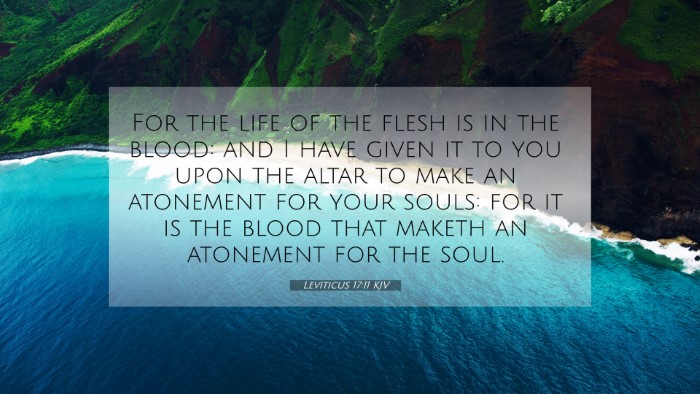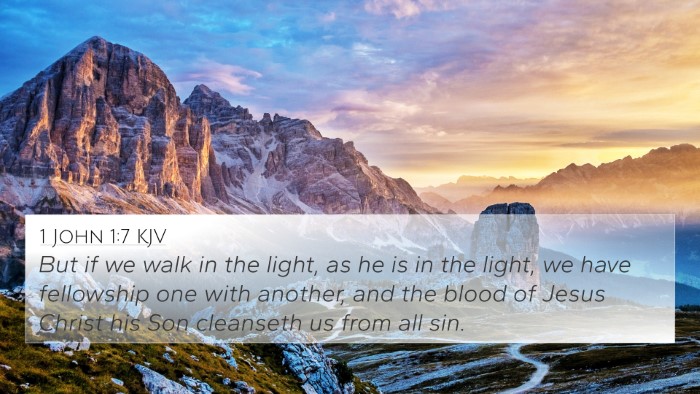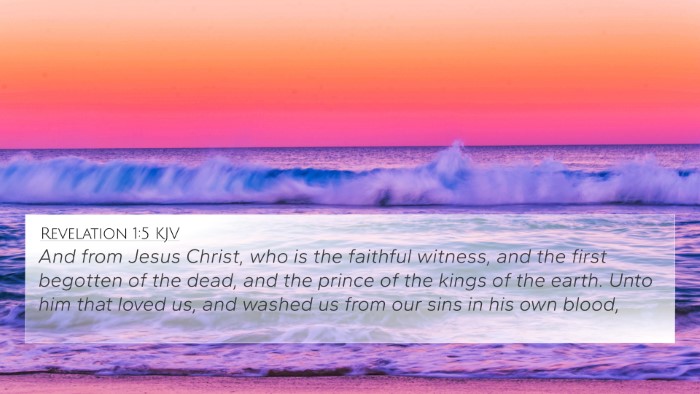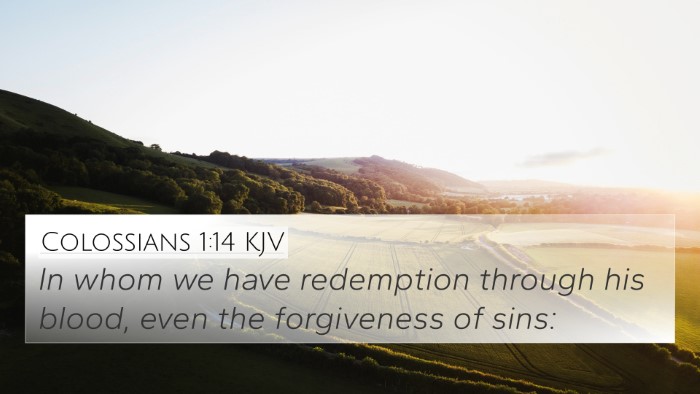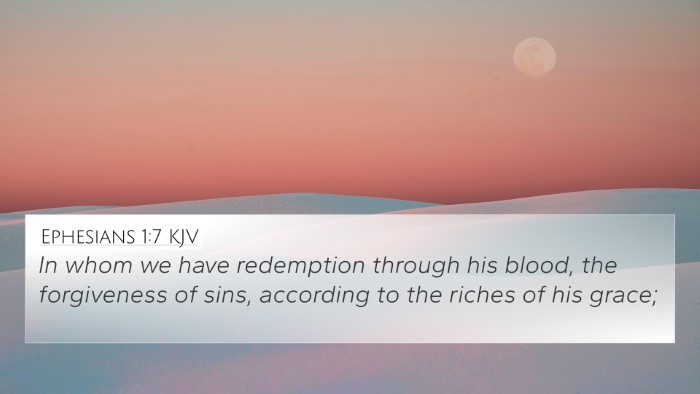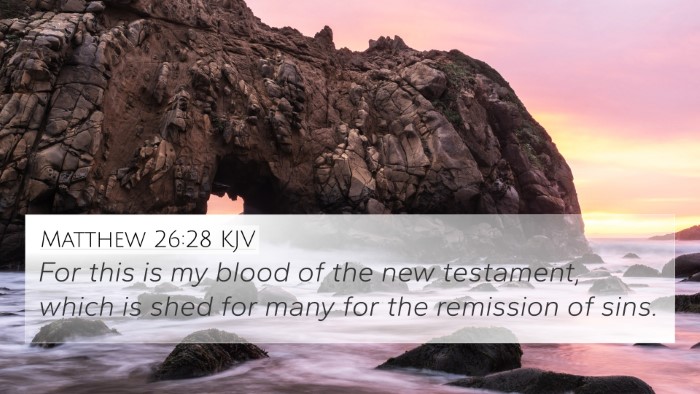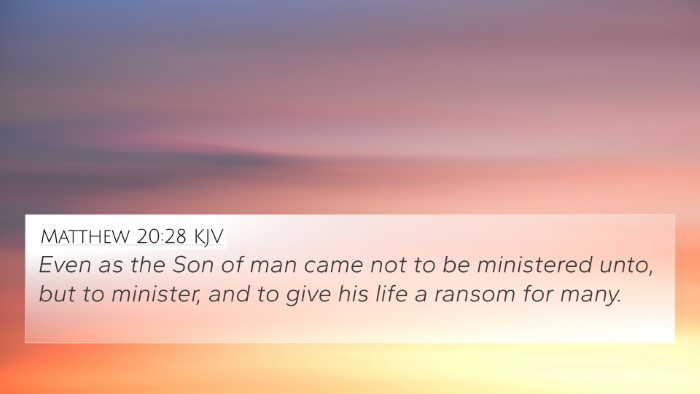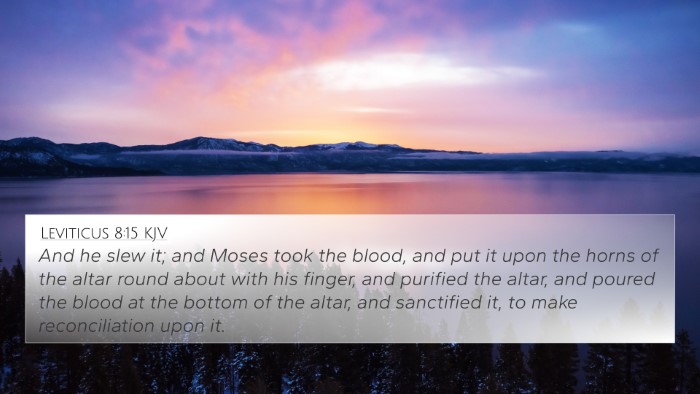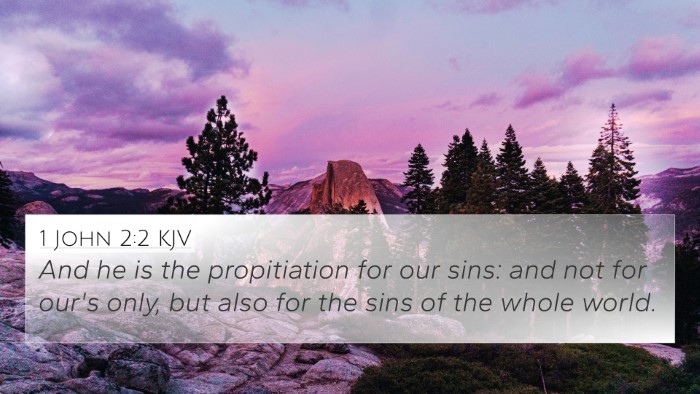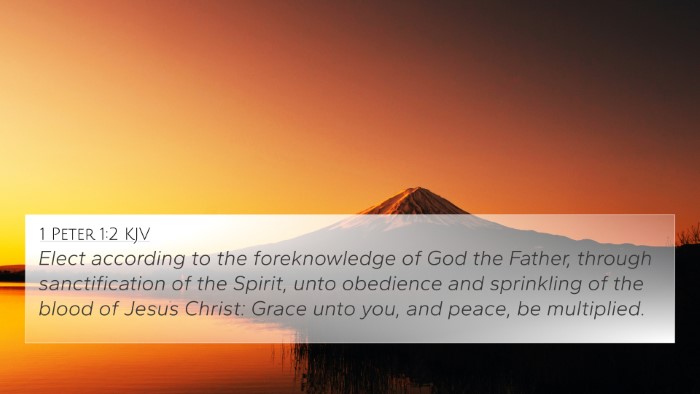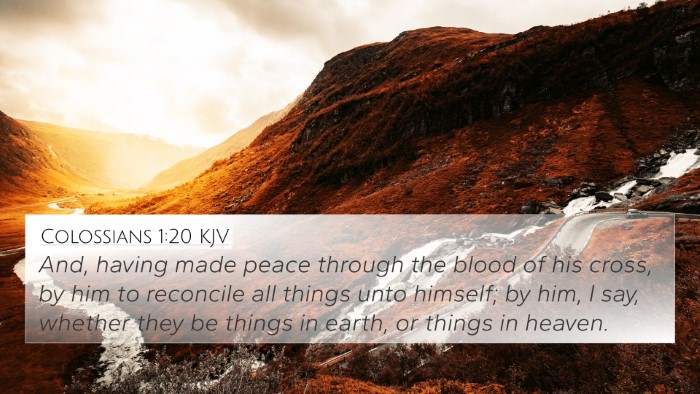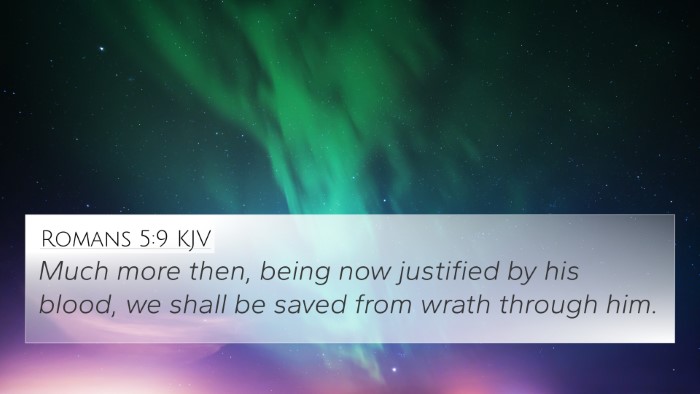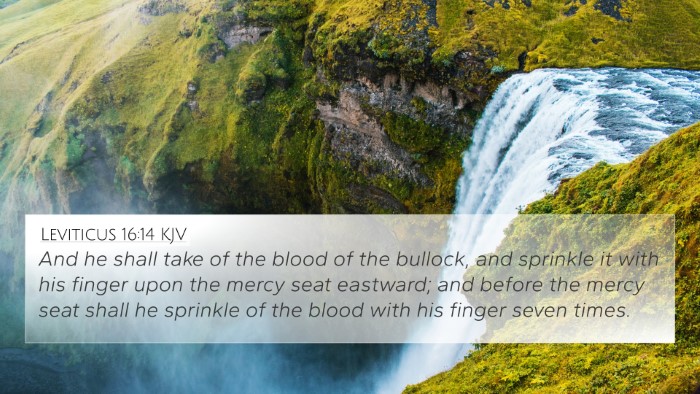Understanding Leviticus 17:11
Leviticus 17:11 states: "For the life of the flesh is in the blood: and I have given it to you upon the altar to make an atonement for your souls: for it is the blood that maketh an atonement for the soul."
This verse emphasizes the sacredness of blood in the context of sacrificial offerings. The interpretation revolves around themes of life, atonement, and the divine establishment of practices that bridge the human and the divine.
Key Themes
- Life is in the Blood: The notion that blood represents life itself is foundational. Blood is seen as the vital essence of physical beings, directly connecting to the concept of life and death.
- Atonement: The verse highlights blood as a means of atonement, indicating that God has instituted a system in which sacrifices can reconcile humanity with divine holiness.
- The Altar: The altar symbolizes a place of sacrifice and worship. It is where believers approach God to seek forgiveness and restoration.
Commentary Insights
Matthew Henry: Henry emphasizes that God ordained blood as an atoning agent. He points out that the act of sacrifice, through blood, serves as a reminder of God’s mercy and the seriousness of sin. Blood signifies both the gravity of sin and the magnitude of divine grace.
Albert Barnes: Barnes reflects on the theological implications of blood in atonement. He stresses that blood signifies the life given in sacrifice, prefiguring the ultimate sacrifice of Christ. This foreshadowing establishes a deeper understanding of sacrificial requirements and God's plans for redemption.
Adam Clarke: Clarke provides an analysis of the ritualistic elements involved in sacrifices. He notes how these rituals served to underline the importance of obedience and devotion to God's covenant, reinforcing the critical nature of maintaining a relationship centered on holiness.
Bible Verse Cross-References
This verse connects to several others across the Bible, enhancing its meaning and setting a foundation for deeper study:
- Hebrews 9:22: "And almost all things are by the law purged with blood; and without shedding of blood is no remission."
- Exodus 12:13: "And the blood shall be to you for a token upon the houses where ye are: and when I see the blood, I will pass over you, and the plague shall not be upon you to destroy you."
- 1 John 1:7: "But if we walk in the light, as he is in the light, we have fellowship one with another, and the blood of Jesus Christ his Son cleanseth us from all sin."
- Romans 3:25: "Whom God hath set forth to be a propitiation through faith in his blood, to declare his righteousness for the remission of sins that are past, through the forbearance of God."
- Leviticus 16:14: "And he shall take of the blood of the bullock, and sprinkle it with his finger upon the mercy seat eastward; and before the mercy seat shall he sprinkle of the blood with his finger seven times."
- John 6:53: "Then Jesus said unto them, Verily, verily, I say unto you, Except ye eat the flesh of the Son of man, and drink his blood, ye have no life in you."
- Matthew 26:28: "For this is my blood of the new testament, which is shed for many for the remission of sins."
Connections Between Bible Verses
Understanding Leviticus 17:11 through the lens of other verses enables a richer interpretation of its significance in both the Old and New Testaments. By cross-referencing selected scriptures, we can see how the themes of sacrifice and atonement evolve throughout the canon.
Thematic Bible Verse Connections
Thematic connections demonstrated in related verses show a continuity of God’s salvation plan throughout the scriptures. These connections provide insights into God's character and His redemptive work:
- Atonement through blood: The consistent theme of atonement through blood ties together Leviticus with the teachings of the New Testament, particularly in the context of Christ’s sacrifice.
- Life and death correlation: The gravity of sin leading to death is contrasted by God's provision of life through sacrificial blood, seen in verses throughout both Testaments.
- Divine mercy: Each reference to blood, atonement, and sacrifice emphasizes God's mercy and loving-kindness toward humanity.
How to Use Bible Cross-References
Engaging with Bible cross-referencing methods helps deepen scripture understanding. Here are some practical tools to facilitate this process:
- Bible Concordance: A useful resource for locating verses related by keywords.
- Cross-Reference Bible Study: Use annotated Bibles that include cross-references for deeper engagement with the text.
- Bible Reference Resources: Guides that categorize verses by themes, allowing for a thematic study of the scripture.
Conclusion
The insights gleaned from Leviticus 17:11 reveal profound truths about God’s design for life and atonement. By exploring this verse in conjunction with its cross-references, believers can engage more fully with scriptural teachings and the overarching narrative of redemption found throughout the Bible.
A comprehensive understanding of Leviticus 17:11 enhances not just individual theological comprehension, but also enriches broader cross-referential studies—making it an invaluable verse in the pursuit of spiritual growth.
